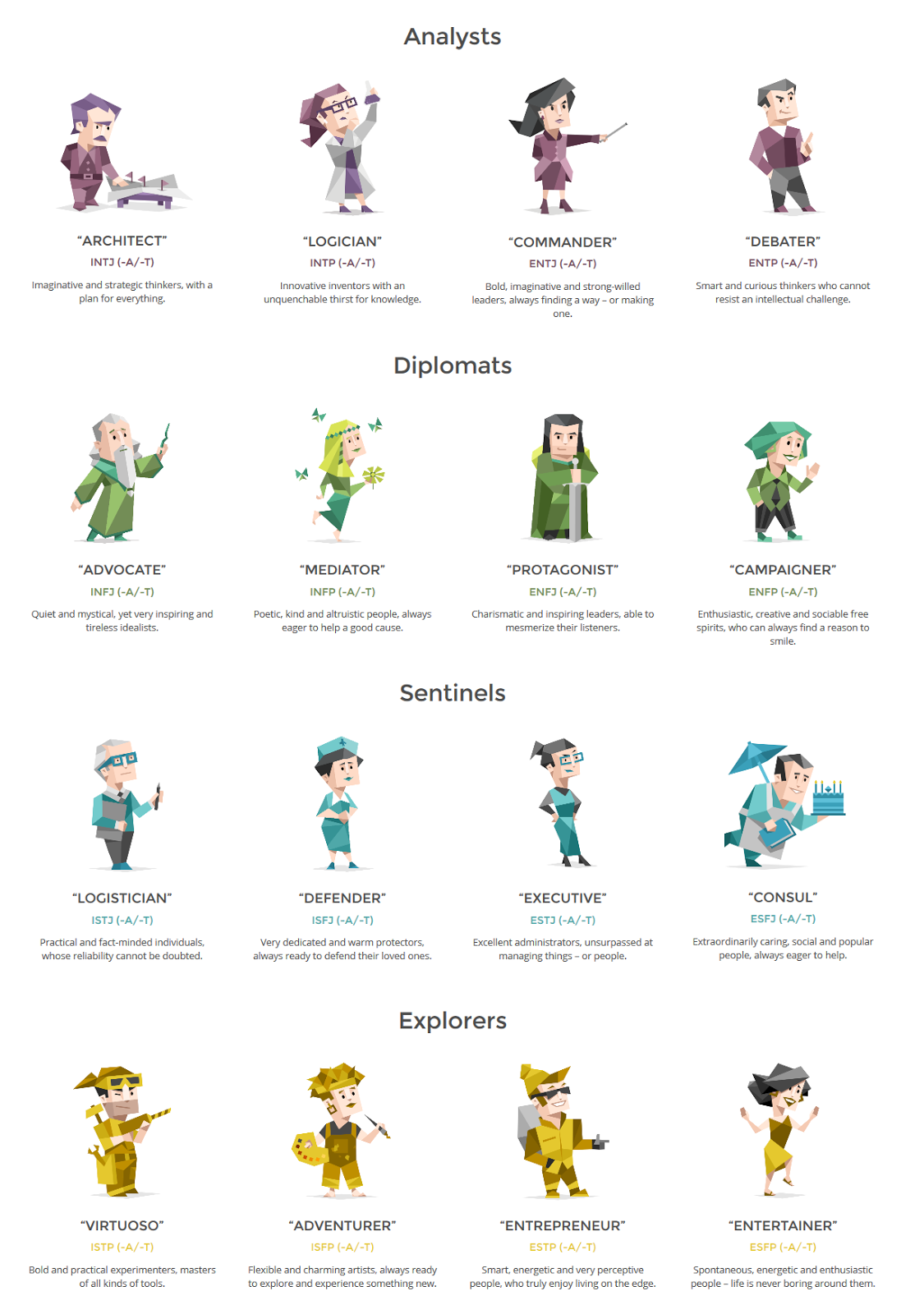The 13 personalities are an intriguing concept that captures the diversity of human behavior and traits. Understanding these personalities can provide valuable insights into our own characteristics and how we interact with others. In this article, we will delve deep into the 13 personalities, their significance, and how they can influence our lives and relationships.
From the enigmatic INTJ to the charismatic ENFP, each personality type has distinct traits and tendencies. This exploration not only enhances our self-awareness but also fosters better communication and understanding in our interactions. Whether you're looking to improve your personal relationships or seeking professional growth, grasping these personalities can be incredibly beneficial.
Join us as we journey through the fascinating world of the 13 personalities, unraveling the complexities of human behavior and relationships. You might discover something new about yourself or someone you know!
Table of Contents
- What Are the 13 Personalities?
- The Importance of Understanding Personalities
- The 13 Personality Types
- How to Identify Your Personality
- The Role of Personalities in Relationships
- The Impact of Personalities in the Workplace
- Common Misconceptions About Personalities
- Conclusion
What Are the 13 Personalities?
The concept of the 13 personalities is derived from various psychological theories and frameworks that categorize human behavior into distinct types. While the most popular model is the Myers-Briggs Type Indicator (MBTI), which includes 16 types, the 13 personalities offer a simplified yet effective view of human traits.
These personalities are not just labels; they represent a range of behaviors, motivations, and preferences that shape how we perceive the world. By understanding these traits, individuals can enhance their interpersonal skills and improve their overall quality of life.
The Importance of Understanding Personalities
Understanding the 13 personalities is crucial for several reasons:
- Self-Discovery: Gaining insights into your personality can lead to personal growth and self-improvement.
- Improved Relationships: Recognizing and appreciating different personality types can enhance communication and reduce conflicts.
- Professional Development: Understanding personality dynamics can foster teamwork and collaboration in the workplace.
The 13 Personality Types
Here are the 13 personality types, grouped into three main categories: introverts, extroverts, and ambiverts.
1. Introverts
Introverts are individuals who recharge their energy through solitude and introspection. They tend to prefer deep conversations over small talk and often need time alone to process their thoughts. Key traits include:
- Thoughtful and reflective
- Excellent listeners
- Creative and imaginative
2. Extroverts
Extroverts thrive in social situations and gain energy from interacting with others. They are often outgoing, enthusiastic, and expressive. Key traits include:
- Talkative and assertive
- Enjoy group activities and team projects
- Quick to form connections with others
3. Ambiverts
Ambiverts exhibit qualities of both introverts and extroverts, adapting their behavior based on the situation. They are flexible and can navigate various social settings comfortably. Key traits include:
- Balanced in social interactions
- Adaptable to different environments
- Possess a wide range of interests
How to Identify Your Personality
Identifying your personality type can be accomplished through various methods:
- Personality Tests: Online assessments, such as the MBTI or the 16 Personalities test, can provide insights into your traits.
- Self-Reflection: Taking time to reflect on your behaviors and preferences can help you understand your personality.
- Feedback from Others: Seeking input from friends or colleagues can offer a different perspective on your personality.
The Role of Personalities in Relationships
Personality types play a significant role in personal relationships. Understanding your partner’s personality can enhance communication and foster a deeper connection. Consider these aspects:
- Conflict Resolution: Different personality types may approach conflicts differently. Recognizing these differences can lead to more effective resolutions.
- Complementary Traits: Certain personality combinations may complement each other, creating a balanced relationship.
- Shared Interests: Understanding personality types can help identify common interests and activities that strengthen bonds.
The Impact of Personalities in the Workplace
In a professional setting, personality types can influence teamwork, leadership styles, and overall workplace dynamics. Here’s how they impact the workplace:
- Team Composition: Diverse personality types can lead to more innovative solutions and better problem-solving.
- Leadership Styles: Understanding personality traits can help leaders tailor their approach to motivate and engage their teams.
- Communication: Recognizing different communication styles can enhance collaboration and reduce misunderstandings.
Common Misconceptions About Personalities
Despite the valuable insights that personality types provide, several misconceptions persist:
- Fixed Traits: Many believe personality traits are fixed, but they can evolve over time with experiences and growth.
- Negative Connotations: Certain personality types are often viewed negatively, leading to misunderstandings and biases.
- Oversimplification: While personality types offer a framework, they don’t capture the complexity of human behavior.
Conclusion
Understanding the 13 personalities is a powerful tool for personal growth, improved relationships, and enhanced workplace dynamics. By recognizing our own traits and those of others, we can foster more meaningful connections and navigate our interactions with greater empathy and understanding.
We encourage you to explore your personality type and consider how it impacts your life. Share your thoughts in the comments below, and don’t forget to check out our other articles for more insights!
Thank you for reading! We hope to see you back here for more engaging content.
Unveiling Leanne Morgan's Husband: A Journey Through Their Life Together.
Brandi Passante: Her Path, Achievements, And Significance In The Reality TV Industry.
Examining The Life And Legacy Of Lauryn Hill's Daughter: A Comprehensive Analysis Of Selah Marley.


